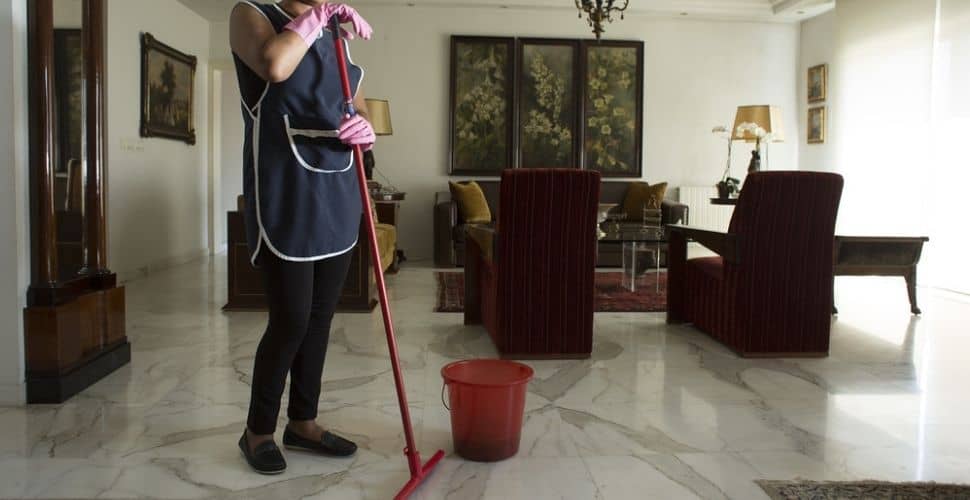Domestic work can be an exploitative job for many informal domestic workers around the world. In many countries in Africa, domestic workers don’t have access to effective labor or social protections and many work without a formal contract due to their status as informal workers.
Work conditions for informal domestic workers
As a result, poor pay, unpaid wages, lack of food, and abuse are some of the conditions that domestic workers have to endure with little recourse to challenge employers. Some workers like Maureen from Kenya decided to find work abroad in Qatar due to the conditions in her home country. Yet, awful conditions in Qatar pushed her to return home.
Maureen told DW: “I went to Qatar thinking that my situation would be better, but the prolonged working hours were slowly taking a toll on me. The pay there was comparatively better, but the poor treatment left me with one option; coming back home”.
Juliet is another worker from Uganda who described her experiences: “They [employer] take a long time to pay me. If at all they do, it is in installments. My bosses are rude and scream at me. Sometimes, I am denied meals”.
International standards
Despite efforts from the International Labour Organization to improve the conditions of domestic workers, progress has been slow. Madagascar, Mauritius, Namibia, Sierra Leone, and South Africa are the only African states to have ratified the ILO’s Domestic Workers’ Convention, spurring calls from labor unions in other African countries to integrate domestic workers into the formal employment sector.
“Countries with weak trade unions expose domestic workers to untold vulnerabilities because the workers don’t appreciate the importance of insisting on formal employment,” said Francis Atwoli, Secretary-General of the Central Organization of Trade Unions in Kenya.
Nkole Chishimba, a top trade unionist in Zambia, agrees. “The push for formalizing employment engagements is the first step in tackling this exclusion that has affected domestic workers for centuries,” Chishimba told DW.
“To have the entire sector of Zambian domestic workers covered in the formal employment bracket is our aspiration,” Humphrey Monde, a Zambian union leader, told DW.
A lot of work remains to be done globally
Poor working conditions for domestic workers are not unique to African countries.
In the U.K., migrant domestic workers’ visas are tied to their employers making it difficult for them to negotiate better working conditions or escape from abusive employers. If migrant domestic workers in the U.K. are being exploited by their employer they have to prove it and many have no physical evidence of not receiving payment or being abused. The U.K. has also not ratified the Domestic Workers Convention.
There is still a long way to go ensure the world’s domestic workers are entitled to decent work and are protected from exploitation. Call on your country to ratify the Domestic Workers Convention today!







Freedom United is interested in hearing from our community and welcomes relevant, informed comments, advice, and insights that advance the conversation around our campaigns and advocacy. We value inclusivity and respect within our community. To be approved, your comments should be civil.